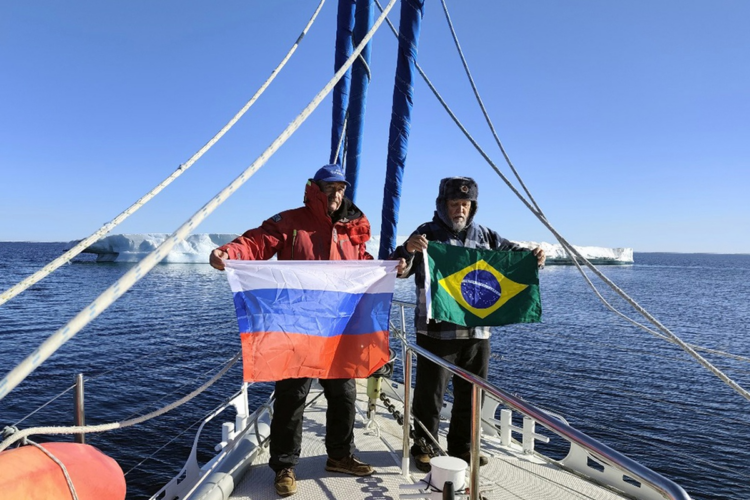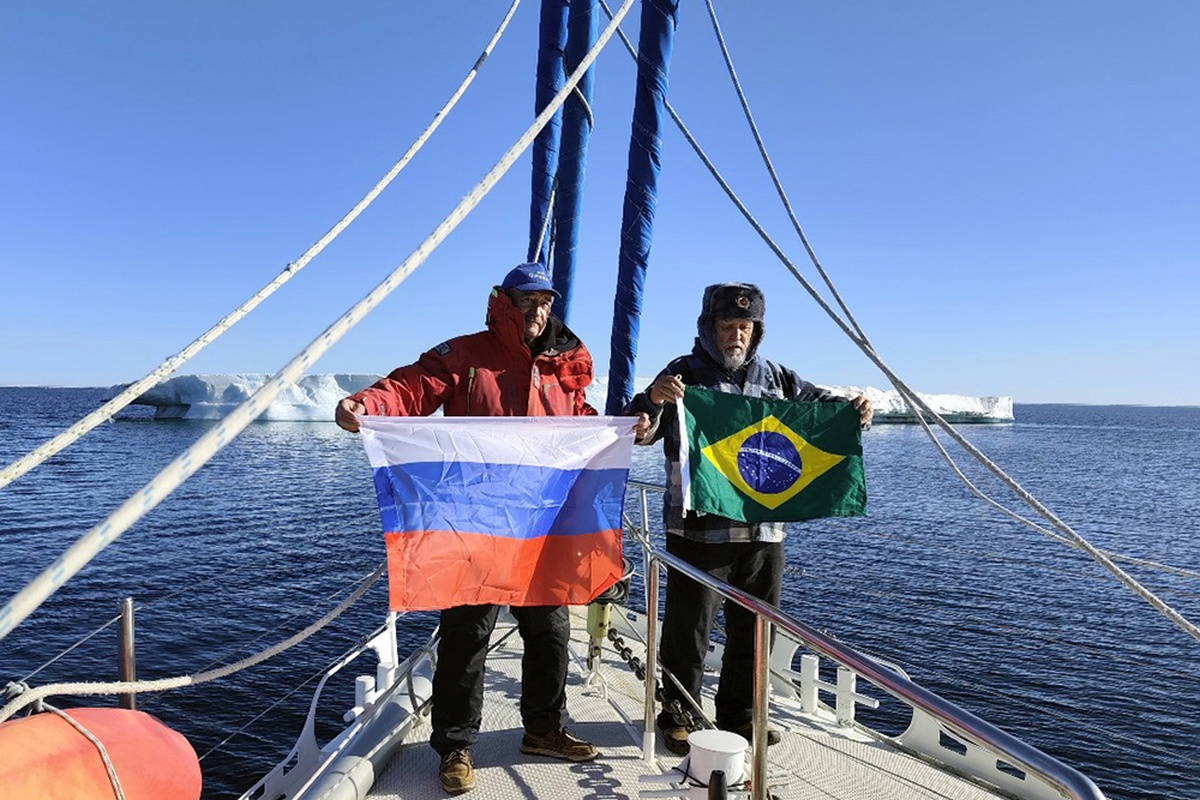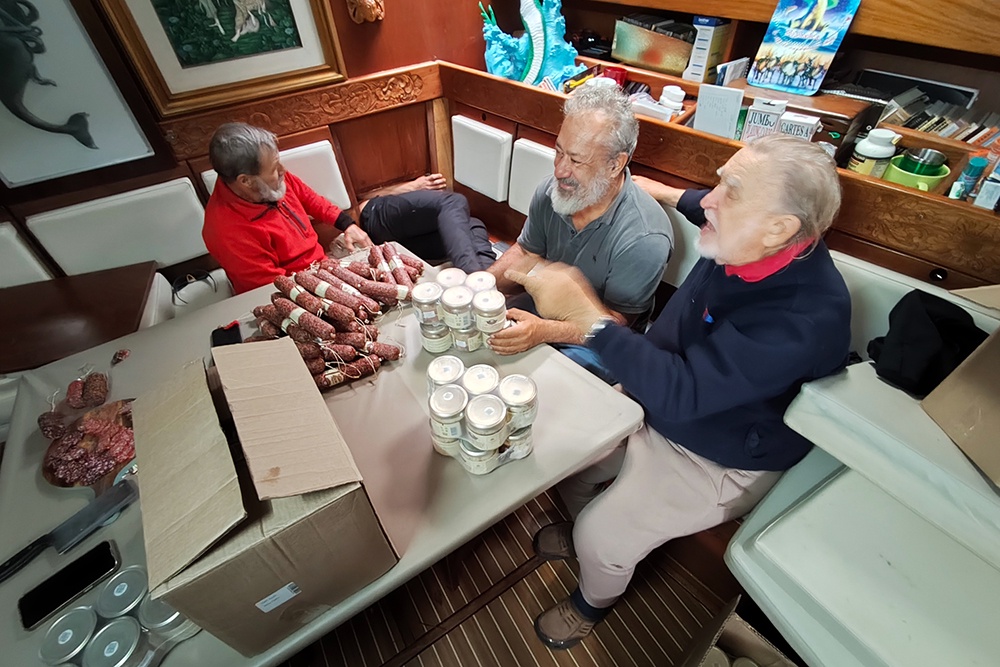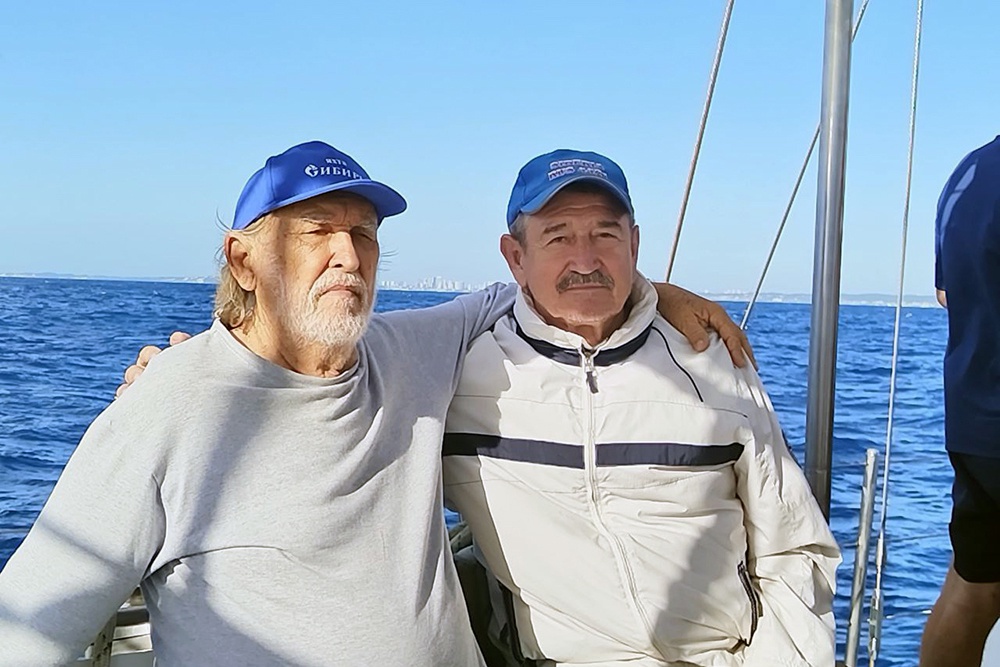A Russian-Brazilian round-the-world expedition has completed the Northern Sea Route.
Published: by .

The international Russian-Brazilian round-the-world sailing expedition "Fraternidade" ("Brotherhood") has completed its voyage along the Northern Sea Route. The voyage from Murmansk to Anadyr is quite a risky undertaking for a sailing vessel. The vessel sustained damage, but survived and continues its journey from the northernmost point of the planet to the southernmost.

Sergey Shcherbakov
The Northern Sea Route turned out to be favorable to the Brotherhood.
The voyage through the ice was challenging and dangerous. But two captains stood at the helm: experienced navigator Aleixo Belov (Brazil) and Sergey Shcherbakov (Russia, Omsk). For the former, this is his fifth circumnavigation, and for the latter, his third. However, this is the Brazilian's first time sailing the Northern Sea Route.
Having departed from Murmansk on July 15th, after visiting the ports of Dikson, Tiksi, and Pevek, the international team reached Anadyr. And thus, Aleixo's dream came true. Moreover, the seasoned sailor was surprised by the warmth of the northerners. The residents of this frigid region gave the travelers such a warm welcome that the Brazilian captain even sent a letter of thanks to Russian President Vladimir Putin.
"We've never experienced such hospitality as in Siberia. We were greeted everywhere like old friends. They introduced us to local sights, history, and culture. They treated us to pies and gave us souvenirs. And in Tiksi, they even held a Russia-Brazil football match. It was unforgettable," shares Aleisho Belov.
One of the most vivid impressions was Murmansk, where the round-the-world yacht was moored next to the icebreaker museum "Lenin." It arrived at the Russian port from Salvador, Brazil. In two months, it traversed the Atlantic Ocean, Iceland, and the Spitsbergen archipelago. Storms damaged the mainmast sail and navigation equipment. "But overall, the boat performed well," says Aleisho Belov.

Omsk enterprises donated nearly a ton of food to the expedition. Photo: Sergey Shcherbakov
The sailboat he built from his own designs was repaired in Murmansk and prepared for the northern voyage. Next to the nuclear-powered icebreaker, the two-masted vessel, 22 meters long and about seven meters wide, seemed almost like a toy. It's surprising that seven people dared to navigate the harsh Arctic seas on it. Preparing for the worst (in case they had to spend the winter in the Arctic), the yachtsmen stocked up heavily on provisions. Omsk businesses donated almost a ton of food to the expedition: condensed milk, stewed meat, pasta, biscuits, and chocolate.
A friendly relationship developed between the Brazilians and Omsk residents during the yacht "Sibir"'s expedition to Antarctica. The vessel docked in Salvador. Aleixo helped with repairs and shared his dream with Shcherbakov. Then fate brought them together again. Last year, Belov visited Omsk to discuss the upcoming route in more detail. A common goal united the two captains, who were very different in character.
"They complement each other well. 82-year-old Aleisho is a bit grumpy. He demands discipline. But he also loves to joke. A strict energy-saving regime is in place on the yacht. We only turn on the lights when absolutely necessary. We use seawater for washing dishes," shares assistant captain Olga Velichko. "Negotiations with border guards, fuel and food suppliers, authorities, the hydrometeorological service, and coordinating route maps are Sergei Shcherbakov's responsibility."

The captains complement each other: Aleisho Belov (left) and Sergei Shcherbakov.
The captains believe that the negative influence of women on board is a prejudice. Therefore, alongside the men, a Brazilian woman, Zhanna, and an Omsk resident, Olga, stand watch. There are no concessions. They stand watch just like everyone else. They carry water canisters to fill the tanks. They operate the winches, set the sails, and keep watch in the galley.
The most difficult passage along the Northern Sea Route turned out to be the section from Tiksi to Pevek, the northernmost city in Russia.
"It was quite difficult. The white nights were over. Ice and fog were everywhere. We moved very slowly at night, illuminating the way with flashlights. On the final leg, vast ice fields even forced us to turn around 180 degrees. Winds gusting up to 20-30 meters per second and ice ridges periodically hit the hull. We managed to avoid any major damage, but the boom mount was not so lucky," Velichko recalls.
Setting off from Pevek was also a struggle. A strong headwind heeled the yacht hard toward the shore. The starboard stanchions were severely bent, and the fender was torn off.
Nevertheless, according to Sergei Shcherbakov, who has sailed this route more than once, the Northern Sea Route proved surprisingly kind: "In the Chelyuskin area, there was a complete calm with mirror-like water. The sun shone over the Long Strait. Not a cloud was visible as we approached Anadyr. Fraternidad literally 'flew' to its northernmost point. 450 nautical miles from Dikson to Vilkitsky Strait in just four days—a record. Even the harsh 180th meridian was kind. We managed to capture magnificent shots that will be useful for the album and film about the expedition."
Aleixo Belov admitted that he keeps a diary. He's already filled four notebooks. And when he returns to Brazil, he'll publish a book.
According to the sailors, the crew is generally close-knit. The Brazilians are very cheerful, always ready to help. And the Russians reciprocate. So the name "Brotherhood" suits the yacht very well.
By the way
The international marine expedition "Fraternidade" launched on April 12, 2025. The route will take the Atlantic, the Northern Sea Route, and the Pacific Ocean, connecting the North and South Poles. The trip will cover approximately 45,000 kilometers. The circumnavigation will conclude in early 2026, where it began—in Salvador. The expedition is under the flags of BRICS and the Russian Geographical Society. It is timed to coincide with the 80th anniversary of the Great Victory, the 200th anniversary of diplomatic relations between Russia and Brazil (in 2028), the 180th anniversary of the Russian Geographical Society, and the 20th anniversary of the creation of BRICS (in 2026).
Comments